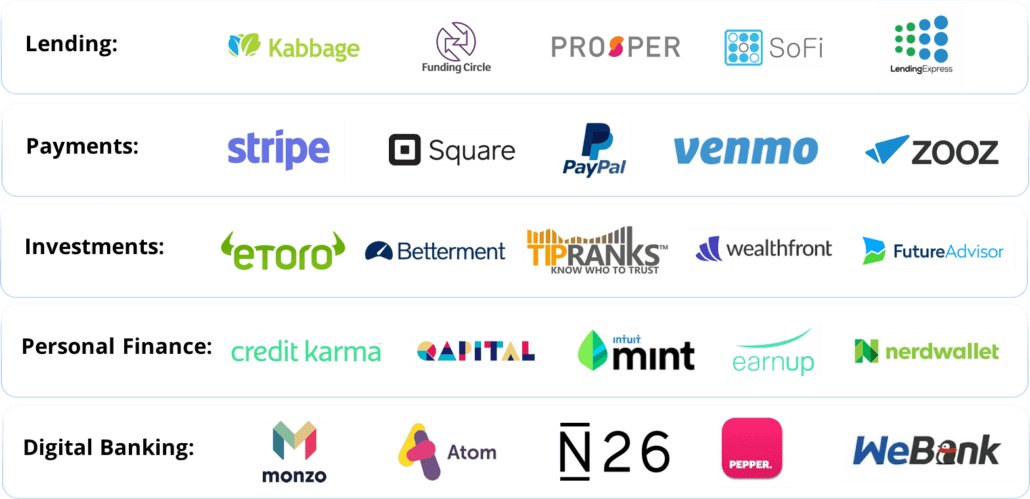For quite a few years now, financial institutions considered fintech companies as the industry’s biggest potential disruptor, as confirmed by KMPG’s recent survey. As such, many financial institutions have been formulating their fintech strategies, opening innovation hubs and investing in fintech startups to some extent. However, collaboration levels have been limited to specific service acquisitions and initiatives and there is so far limited evidence of a significant enough change taking place in the traditional banking sector.
Being slow to embrace new technologies, highly sophisticated fintech startups have managed to flood the market, offering customers superior user experience as standard and enabling the strongest fintechs to gain significant share of the banking world’s core business. Over the past year we’ve seen a dramatic increase in the complexity of the competitive landscape both from early and later stage fintech startups. To add to this, competition has come from the new economies being created thanks to blockchain technology on the one hand, and the big tech giants strengthening their fintech capabilities on the other.
In this rapidly changing market, financial institutions are feeling the pressure and are tooling themselves up by adopting new technologies, breaking down the barriers between siloed internal systems and creating fintech strategies for adopting a more collaborative working framework with the wider industry. If they are to maintain their relevance moving forward, the banks know change needs to happen now.
In the past few years we have seen over 30 fintech unicorns and many equally significant companies start to rival the banks at their core activities including lending, investments, payments, personal finance and digital banking.Â
Top 5 fintech companies by area of focus:

Unburdened by outdated legacy systems and heavy operational costs, the fintechs of tomorrow benefit from having strong artificial intelligence and machine learning capabilities and are able to offer highly personalized, timely, optimally designed financial products that are often perfectly tailored to a consumer’s behaviour.

